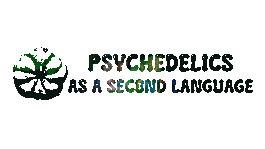Remembering Roland Griffiths
The heartbreaking news of Dr.Roland Griffiths’s passing was given to the world yesterday, October 17th. Griffiths was diagnosed with Stage 4 metastatic colon cancer at 76. Despite his diagnosis to be terminal, he remained optimistic about existence. In an interview with the New York Times, he reminded us that we all are mortal quoting. “We all know that we’re terminal.”
Dr.Griffiths was an illustrious psychopharmacology professor at Johns Hopkins and spent decades studying the mechanism of mood-altering drugs. During his research, he published over 400 scientific papers on opiates and cocaine, sedatives and alcohol, and nicotine and caffeine.
During the early 2000s, his work on the most commonly used drug worldwide, caffeine, was groundbreaking, showing that caffeine was addictive, people could go under a painful withdrawal, and that a single dose of caffeine is sufficient to produce mood and behavioral effects.
However, his fascination with the human consciousness and the human mind had other plans for him, alongside a meditation experience in 1994, was what led him to in 2006 publishing the mind-blowing article: “Psilocybin Can Occasion Mystical-Type Experiences Having Substantial and Sustained Personal Meaning and Spiritual Significance.” causing a media ruckus and reviving the interest in clinical research of psychedelics.
This double-blind study objective was to evaluate the acute and long-term psychological effects of a high dose of psilocybin relative to a comparison compound administered under comfortable and supportive conditions.
The results have shown that psilocybin increased measures of mystical experience. At two months, volunteers rated the psilocybin experience as having substantial personal meaning and spiritual significance and attributed to the experience sustained positive changes in attitudes and behavior consistent with changes rated by community observers.
With the positive results obtained by Griffiths’s studies, it is safe to say Griffiths somewhat paved the way to successfully use psilocybin to treat anxiety in cancer patients and similar research done for treating alcoholics, smokers, and patients suffering from depression.
Ironically, his laboratory’s first therapeutic study was with psilocybin with cancer patients. However, he decided to wait and investigate his condition, and when he did decide to consume a psychedelic he chose LDS.
His trip was described to the New York Times, and his approach was similar to a reporter’s approach. He queried about his cancer with questions such as:
“What are you doing here? Is this going to kill me?”
He reported to Mr.Marchese that the answer was the following:
“‘Yes, you will die, but everything is absolutely perfect; there’s meaning and purpose to this that goes beyond your understanding, but how you’re managing that is exactly how you should manage it.’”
Roland Griffiths will always remain in our hearts as a kind soul who has brought wonders to the world we live in and the world of psychedelics, as someone who enjoyed life with gratitude and was fascinated with the human mind and consciousness.
“I would’ve claimed to be pretty awake prior to the cancer diagnosis. I’m much more awake now. There’s no reason that we can’t all wake up. That’s the overarching message that I want to broadcast is ‘Join me in the celebration, the appreciation of this miracle that we all find ourselves in.’”
— Roland Griffiths, PhD
Support Roland Griffiths research at:
Read more on Roland Griffiths at:
https://www.nytimes.com/interactive/2023/04/03/magazine/roland-griffiths-interview.html
https://hub.jhu.edu/magazine/2023/summer/roland-griffiths-illness-professorship/
https://www.wpr.org/how-pioneering-psychedelic-researcher-leaned-his-terminal-cancer-diagnosis

